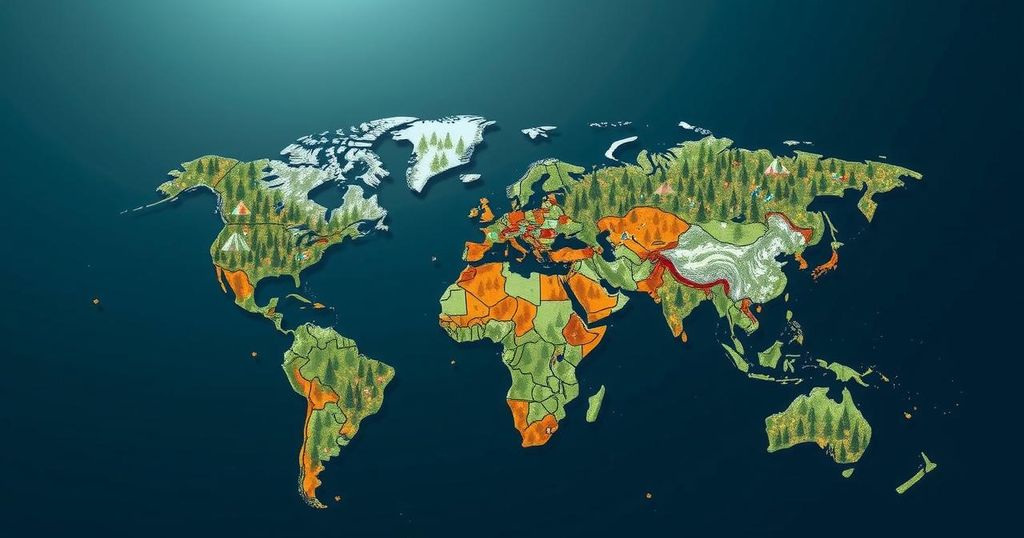Climate Migration Crisis: Urgent Needs Amidst Growing Displacement
The article discusses the growing issue of climate migration as climate change forces millions out of their homes. Ugochi Daniels of the IOM details the urgency of addressing displacement due to climate impacts, noting that approximately 26 million people were displaced last year. Projections indicate that 216 million may be displaced by 2050, predominantly in Africa, necessitating urgent international cooperation and effective migration policies to support vulnerable communities.
As climate change intensifies, displacement due to climatic events is escalating, impacting millions in vulnerable regions. During the recent Baku climate conference, Ugochi Daniels, Deputy Director General for Operations at the International Organization for Migration (IOM), underscored the urgency of addressing this crisis. Current figures reveal that approximately 26 million individuals were displaced by climate factors in the past year alone. Many communities are forced to migrate as their livelihoods are compromised by climate phenomena, triggering organized relocations to better secure their futures. Climate migration is projected to escalate dramatically, with estimates from the World Bank indicating that 216 million people may be displaced by 2050 due to climate influences, primarily within their home countries. Africa is projected to be the most affected region, with significant populations in sub-Saharan and North Africa facing severe climate vulnerabilities. Daniels highlighted the interconnectedness of climate impacts and migration patterns, asserting that without adequate preparatory investments, communities cannot effectively manage the repercussions of extreme weather events. She emphasized the importance of integrating human mobility into global adaptation efforts, which have already gained traction in various agreements. The ongoing discussions at the conference reflect the growing acknowledgment of the role of migration as an adaptive strategy in response to climate crises. The IOM aims to facilitate the inclusion of vulnerable communities in decision-making processes related to climate adaptation and financing. Daniels reiterated the significance of remittances sent by migrants, which bolster economies in developing countries. In the context of the newly operational Loss and Damage Fund, Daniels emphasized the necessity of accessible climate finance for vulnerable populations. She called for proactive regional cooperation to address climate-related migration effectively, stressing that at every level, the voices of the affected communities must inform policies and actions. Daniels concluded by asserting that well-managed migration is a viable adaptation strategy, one that has shaped human civilization historically and will continue to do so in the face of climate change. The solutions and frameworks necessary to ensure the safe and dignified movement of people are already available; the focus now must be on collective action and implementation.
The article addresses the significant issue of climate migration, a phenomenon that is becoming increasingly pressing as global temperatures rise and climate-related disasters become more frequent. It outlines the insights of Ugochi Daniels from the IOM at the Baku climate talks, where she discusses the causes of displacement linked to climate change, and emphasizes the urgent need for sustainable migration strategies. The statistics shared highlight the alarming potential for future displacements due to climate impacts, particularly in vulnerable regions like Africa, underscoring the necessity for international cooperation and effective policy solutions.
In summary, the phenomenon of climate migration is poised to escalate dramatically in the coming decades, affecting millions, particularly in vulnerable regions. Ugochi Daniels from the IOM highlights the necessity of integrating human mobility into climate adaptation strategies, ensuring that affected communities are engaged in the decision-making processes. With projected figures indicating a significant rise in displaced populations due to climate impacts, the urgency for effective policy and financing mechanisms to support these vulnerable groups is critical. Collective action at the international level is essential to address this growing crisis.
Original Source: www.ipsnews.net




Post Comment